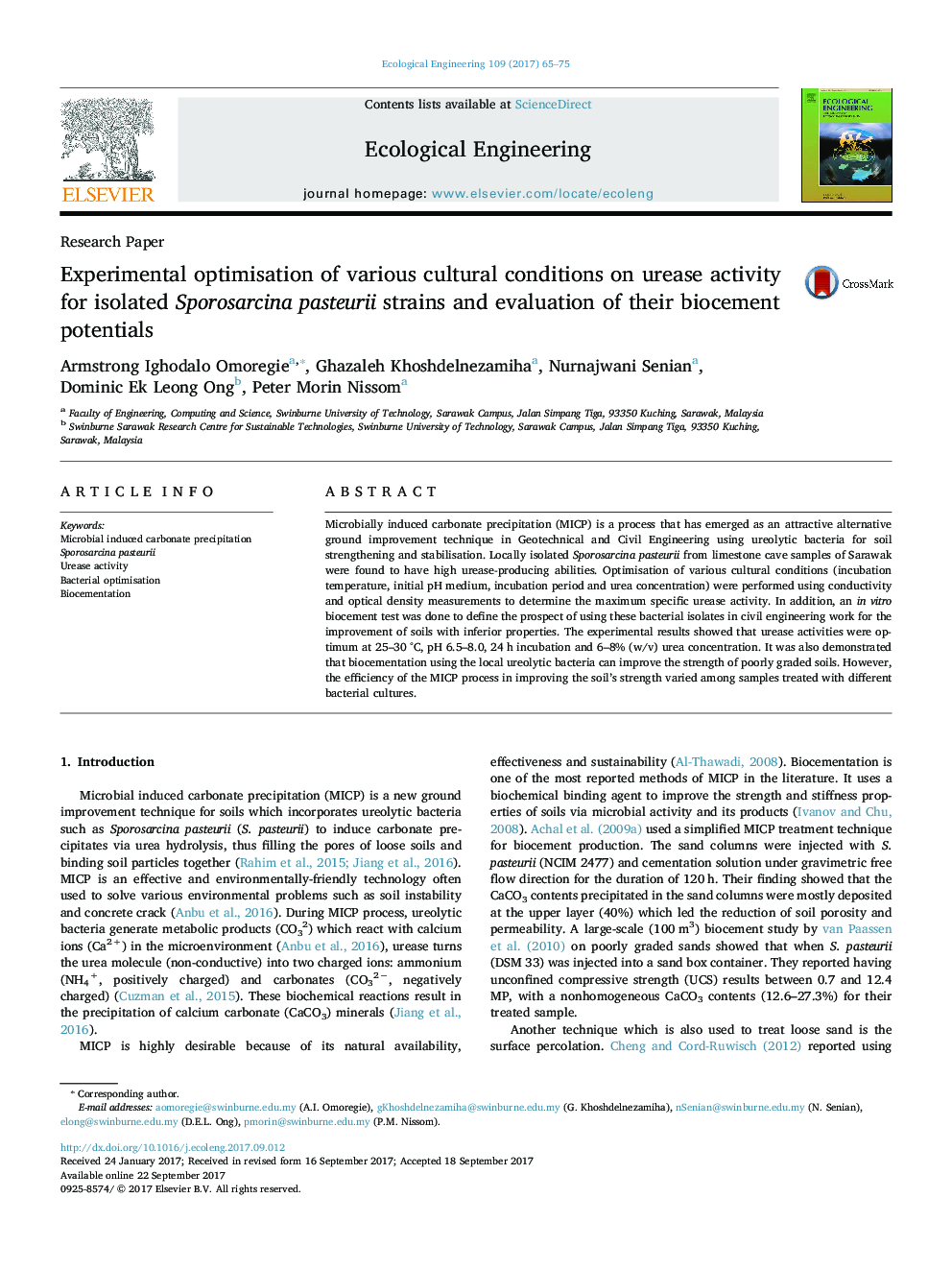| Article ID | Journal | Published Year | Pages | File Type |
|---|---|---|---|---|
| 5743645 | Ecological Engineering | 2017 | 11 Pages |
Microbially induced carbonate precipitation (MICP) is a process that has emerged as an attractive alternative ground improvement technique in Geotechnical and Civil Engineering using ureolytic bacteria for soil strengthening and stabilisation. Locally isolated Sporosarcina pasteurii from limestone cave samples of Sarawak were found to have high urease-producing abilities. Optimisation of various cultural conditions (incubation temperature, initial pH medium, incubation period and urea concentration) were performed using conductivity and optical density measurements to determine the maximum specific urease activity. In addition, an in vitro biocement test was done to define the prospect of using these bacterial isolates in civil engineering work for the improvement of soils with inferior properties. The experimental results showed that urease activities were optimum at 25-30 °C, pH 6.5-8.0, 24 h incubation and 6-8% (w/v) urea concentration. It was also demonstrated that biocementation using the local ureolytic bacteria can improve the strength of poorly graded soils. However, the efficiency of the MICP process in improving the soil's strength varied among samples treated with different bacterial cultures.
